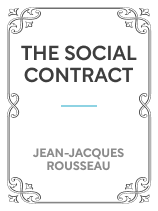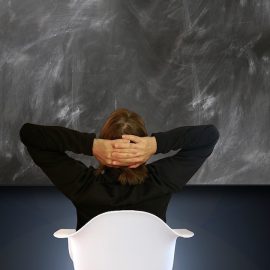

This article is an excerpt from the Shortform book guide to "The Social Contract" by Jean-Jacques Rousseau. Shortform has the world's best summaries and analyses of books you should be reading.
Like this article? Sign up for a free trial here .
How should we understand the “state of nature” in the context of political philosophy? What was Rousseau’s view on the subject?
In a state of nature, people live according to the laws of human nature, especially the law of self-preservation. In his classic work The Social Contract, Jean-Jacques Rousseau discusses the state of nature in the context of society and the state.
Read more to understand Rousseau on the state of nature.
Rousseau on the State of Nature
In The Social Contract, Rousseau outlines what life is like outside of society, in a “state of nature.” According to Rousseau, a state of nature is where we live only by the laws of human nature—primarily the natural law of acting in self-preservation. The only society that forms in a state of nature is the family, and only briefly when children are dependent on their parents. After that, Rousseau claims, human nature no longer compels us to stay together. Therefore, he says life in a state of nature is mostly spent alone with absolute freedom to pursue whatever we want, whenever we want it.
We do sometimes choose to form societies because having more people around makes survival easier. However, we aren’t naturally compelled to do so—we choose to join these societies and can choose to leave.
(Shortform note: Rousseau’s claim that humans aren’t naturally social beings contrasts with extensive psychological, biological, and neuroscientific research. Research shows that human brains are structured for social interaction and that social isolation negatively impacts mental and physical health. This research suggests that human nature does compel us to form social groups, seriously challenging one of the main premises of Rousseau’s arguments.)
Standards for Legitimacy
Based on the benefits of the state of nature and the reason we form societies, Rousseau creates two standards a society must meet to be legitimate (that is, to have the ethical right to exercise political authority over its members):
1) Protection: A legitimate society must offer the benefit of protection that people form societies for in the first place. If it didn’t, people would be better off remaining in the state of nature, free to do whatever they want.
2) Freedom: A legitimate society must not infringe on the freedom of its members.
(Shortform note: Rousseau’s standards for a legitimate society are far stricter than those of other enlightenment philosophers—this is partially due to his relatively kind view of the state of nature. Rousseau believes the state of nature is the source of human morality (Emile, or On Education). Therefore, Rousseau’s standards for legitimacy are much higher—since he’s attempting to create a society that maintains this natural goodness. On the other hand, philosophers like Thomas Hobbes (Leviathan) see the state of nature as a violent place where nobody can lead a satisfying life. Therefore, Hobbes’s standards of political legitimacy are low—a society simply must provide protection to be preferable to a state of nature.)
Rousseau offers two reasons why a society can’t legitimately infringe on the freedom of its members:
Reason #1: No One Has the Natural Right to Rule
A society infringes on freedom when some of its members use force to compel the rest to obey. This is an illegitimate use of authority because nobody has a natural right to rule over anyone else: If someone uses violence, their victim doesn’t have any moral obligation to obey them—they just obey out of fear or self-preservation. Limiting freedom by force is therefore unethical.
(Shortform note: Historical context is necessary to grasp the full scope of Rousseau’s argument. Claiming that no man has a natural right to rule another doesn’t just contradict rule by brute force—it also contradicts the predominant religious and political ideology of Europe at the time. For centuries in Europe, the consensus was that legitimacy came from divine right: the belief that God gave monarchs the right to rule. Rousseau’s argument directly challenges divine right, and therefore directly challenges the legitimacy of most European states at the time.)
Reason #2: No One Voluntarily Sacrifices Freedom
Members of society can’t voluntarily sacrifice their freedoms and obey a ruler (or rulers) in exchange for protection. Rousseau gives two reasons why such an arrangement doesn’t make sense in the context of legitimacy:
- A leader has no obligation to protect those who’ve given away all of their rights—and therefore is free to act unethically.
- No rational, ethical person would willingly go against human nature by giving up the freedom to pursue self-preservation.
(Shortform note: To better understand Rousseau’s argument that sacrifice of freedom is illegitimate, we can look to his later work Emile, or On Education. In Emile, Rousseau argues that humans in a state of nature are naturally good and moral. From this perspective, the freedom characteristic of the state of nature is what makes us ethical people—so willingly giving away this freedom means willingly becoming unethical. Since legitimacy requires ethical conduct, it follows that a society made up of a leader with unlimited power and their unethical subjects is illegitimate.)

———End of Preview———
Like what you just read? Read the rest of the world's best book summary and analysis of Jean-Jacques Rousseau's "The Social Contract" at Shortform .
Here's what you'll find in our full The Social Contract summary :
- An explanation of Jean-Jacques Rousseau's social contract theory
- What a legitimate and ethical government looks like
- The two standards a society must meet to be legitimate






